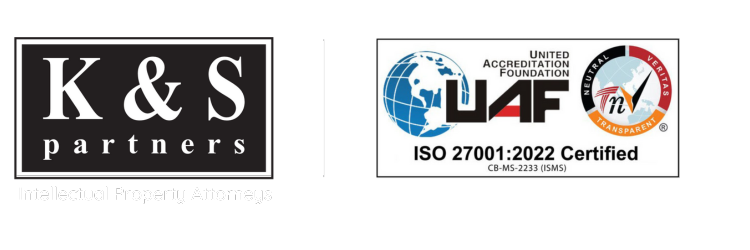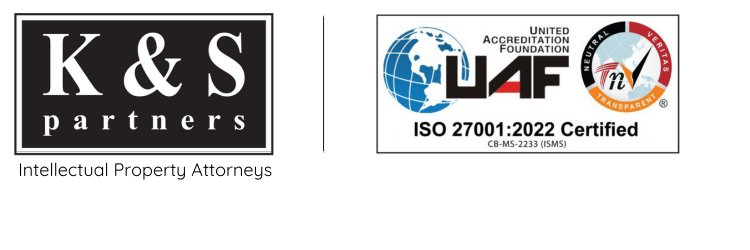The Jan Vishwas (Amendment of Provisions) Act, 2023, (JV Act) came into force on August 11, 2023. The term ‘Jan Vishwas’, which translates as ‘public trust’ in English, signifies a significant step towards trust-based governance and ease of doing business.
The JV Act ushers in a transformative era by revising penalties for non-compliance, emphasizing financial penalties over punitive measures, and striving to eliminate imprisonment or excessive fines for minor contraventions.
While the JV Act seeks to decriminalize 183 provisions within 42 Central Acts under 19 Ministries/Departments, this note specifically delves into its impact on intellectual property (IP) laws namely, the Indian Patents Act, 1970 (Patents Act), the Trade Marks Act, 1999 (TM Act), the Geographical Indications of Goods (Registration and Protection) Act, 1999 (GI Act), and the Copyright Act, 1957 (Copyright Act).
Patents Act, 1970:
The JV Act has significantly revised the Patents Act with amendments made to five sections and the omission of one section.
Omitted Section:
- Section 121 – Use of the words “Patent Office”: The omitted section used to deal with the wrongful use of the words “patent office” as a place of business.
Amended Sections:
- Section 120 – Representation of Patented Articles: The amendment to this section escalates the penalty for falsely representing an article as patented or under a patent application in India to INR 10,00,000 (USD ~12,000) from the earlier INR 1,00,000 (USD ~1,200). Additionally, a fine of INR 1,000 (USD ~12) is imposed for each continuing day of the violation.
- Section 122 – Statement of Working of Patents: The key amendments to this section include a reduction in the penalty for failing to provide a statement of working (Form 27) to INR 1,00,000 (USD ~1,200) from the previous INR 10,00,000 (USD ~12,000). Moreover, under Section 122(2), the provision for imprisonment for submitting false information has been replaced with a fine, calculated as either 0.5% of the total sales or turnover, or INR 5,00,00,000 (USD ~6,00,000), whichever is lesser.
- Section 123 – Practice by Non-Registered Patent Agents: The amendments to this section increase the fine for practice by non-registered patent agents to INR 5,00,000 (USD ~6,000) from the earlier INR 1,00,000 (USD ~1,200). An additional penalty of INR 1,000 (USD ~12) is imposed for each continuing day of the violation.
Newly Included Sections:
- Section 124A – Adjudication of Penalties: This section authorizes the Controller General of Patents, Designs and Trade Marks (Controller) to appoint an adjudicating officer to conduct inquiries and impose penalties, ensuring a fair hearing for the concerned individual.
- Section 124B – Appeal: Aggrieved individuals can appeal against the adjudicating officer’s decision to a higher-ranked appellate authority within 60 days of receiving the order. The appellate authority must resolve the appeal within 60 days, with a provision for late appeals under certain conditions. If there is no compliance with the order of the adjudicating authority within 90 days, there is a fine of INR 1,00,000 (USD ~1,200) or imprisonment for up to one year, or both.
- Section 159 (Sub-section 2) – Insertion of New Clauses: Two new clauses (xiiia) and (xiiib) have been added post clause (xiii) to outline the procedures for inquiries and appeals as per sections 124A and 124B.
Trade Marks Act, 1999:
The JV Act has brought forth several amendments within the TM Act, targeting various sections to refine the penalty structure and adjudication process.
Omitted Sections:
- Section 106 – Penalty for Removing Piece Goods, etc. – The section imposed penalties for removing piece goods, cotton yarn, or cotton thread from any premises referred to in Section 81 of the TM Act, for sale without marking them as required by that section.
- Section 108 – Penalty for improperly describing a place of business as connected with the Trade Marks Office. This section imposed penalties for inaccurately describing a place of business as being associated with the Trademarks Office.
- Section 109 – Penalty for falsifying entries in the Register: Under the erstwhile section, penalties were levied for falsifying entries in the register.
Amended Sections:
- Section 107(2) – Replacement of Imprisonment Clause: The clause in this section previously imposed imprisonment for falsely representing a trademark as registered. This has now been substituted with a fine which is calculated as either 0.5% of the total sales or turnover, or the gross receipts in a profession, or a sum of INR 5,00,000 (USD ~6000), whichever is less.
- Section 140 – Penalty for failure to provide information on imported goods: The punishment for failing to provide information on imported goods under this section has been replaced with a fine of INR 10,000 (USD ~120).
Newly Included Sections:
- Section 112A – Introduction of adjudication mechanism: A new adjudication mechanism is introduced by which the Registrar can appoint an adjudicating officer to conduct inquiries, hold hearings, and impose penalties concerning violations within the TM Act.
- Section 112B – Outline of the appeals process: It lays down the appeals process against decisions made under Section 112A by the adjudicating officer. Any person aggrieved by the order of such adjudicating officer can file an appeal before an appellate authority as provided under the amendments. If a person fails to comply with the order of such adjudicating officer or appellate authority, within ninety days of such order, such person is punishable with a fine of INR 1,00,000 (USD ~1,200) or imprisonment for a term which may extend to one year, or with both.
- Section 157(2) – Adjudication and Appeals Procedure: Two new sub-clauses, namely, (xxxiiia) and (xxxiiib) are added to clause (xxxiii) pertaining to the procedural aspects of the newly introduced sections 112A and 112B. Sub-clause (xxxiiia) outlines the procedure for holding inquiries and imposing penalties as per section 112A, while clause (xxxiiib) delineates the form and manner for preferring appeals under sub-section (2) of section 112B.
Geographical Indications of Goods (Registration and Protection) Act, 1999
The JV Act made one amendment, two omissions, and three new introductions in the GI Act.
Omitted Section:
- Section 43 and Section 44 – Penalties: Section 43 dealt with penalties for improperly describing a place of business as connected with the Geographical Indications Registry. Section 44 dealt with penalties for falsification of entries in the Register.
Amended Sections:
- Section 42 (Sub-section 2) – Change in Penalty Terms: Imprisonment for falsely representing a Geographical Indication as registered has been replaced with a fine. The fine is now calculated as either 0.5% of the total sales or turnover, or a sum of INR 5,00,000 (USD ~6000), whichever is less.
Newly Included Sections:
- Sections 37A & 37B – Section 37 describes what amounts to applying a GI. Section 38 describes what amounts to falsifying and falsely applying GIs. Section 39 provides penalties for these offences. Sub-clauses A and B have been added to Section 37 for adjudication of penalties under the JV Act for adjudication of the punishment for these offences and for appealing against it, respectively. The amendments give the Registrar powers to appoint officers to adjudicate penalties. Any person aggrieved by the order of such adjudicating officer can file an appeal before an appellate authority as provided under the amendments. If a person fails to comply with the order of such adjudicating officer or appellate authority, within ninety days of such order, such person is punishable with a fine of one lakh rupees or imprisonment for a term which may extend to one year, or with both.
- Section 87 – Additional Rules for Inquiry and Appeal: Sub-clauses (oa) and (ob) have been added to govern the manner of preferring an appeal under Section 37.
Copyright Act, 1957
Omitted Sections:
- Section 68 – Penalty for making false statements: This section imposed penalties for making false statements with the intention of deceiving or influencing any authority or officer under the Copyright Act.
The Jan Vishwas (Amendment of Provisions) Act, 2023 has significantly reduced the penalties from imprisonment to fine in various important provisions, especially the Patents Act, 1970.
Although the JV Act attempts to introduce an appeal mechanism under the various intellectual property statutes discussed above, it continues to retain a provision for imprisonment on failure to comply with the order of the adjudicating officer or the appellate authority.
For further assistance, please reach out directly to your K&S Partners contact or write to us at patent@knspartners.com.

